Economics and Education PhD
Doctor of philosophy in economics and education.


Admissions Information
Displaying requirements for the Spring 2024, Summer 2024, and Fall 2024 terms.
Doctor of Philosophy
- Points/Credits: 75
- Entry Terms: Fall Only
Application Deadlines
- Spring: N/A
- Summer/Fall (Priority): December 1
- Summer/Fall (Final): December 1
Supplemental Application Requirements/Comments
- Online Degree Application , including Statement of Purpose and Resume
- Transcripts and/or Course-by-Course Evaluations for all Undergraduate/Graduate Coursework Completed
- Results from an accepted English Proficiency Exam (if applicable)
- $75 Application Fee
- Three (3) Letters of Recommendation
- GRE General Test (Optional for students applying for 2024)
- Academic Writing Sample (Optional)
Additional Degree Information
Program Guide
Doctoral Program Worksheet
Requirements from the TC Catalog (AY 2023-2024)
Displaying catalog information for the Fall 2023, Spring 2024 and Summer 2024 terms.
View Full Catalog Listing
This 75-point degree program is intended for individuals who want to acquire advanced training in the theory, methods, and practices in the economics of education. It is a highly selective program to prepare individuals for leadership roles in teaching, research, or administrative settings.
The coursework for this program consists of three parts: core courses, courses in research methods, and courses in a specialized area of study, such as higher education, early childhood education, field experimentation, or a regional focus. Students work on their dissertation under the guidance of faculty advisors within the program; additional members of the dissertation committee may be drawn from other TC Departments, and at least one committee member must be from Columbia University’s Graduate School of Arts and Sciences. All degrees are conferred by Columbia University. https://www.tc.columbia.edu/education-policy-and- social-analysis/economics-and-education/degrees/doctor-of-philosophy- in-economics-and-education-econ/
Admission to the Ph.D. program is highly selective. All applications to enter the program are evaluated on an individual and holistic basis. However, the curriculum of the degree program assumes that students have some previous coursework in economics and statistics, possess intellectual maturity, and demonstrate an interest in education policy and practice. Compelling applications for admission demonstrate the applicant’s capacity for success and also clearly explain how the Economics and Education curriculum fits with the applicant’s past experiences and future goals.
- View Other Degrees
Program Director : Professor Alex Eble
Teachers College, Columbia University 212 Zankel, Suite B
Contact Person: Katherine Y. Chung, Program Manager
Phone: (212) 678-3677 Fax: (212) 678-3677
Email: kc2610@tc.columbia.edu
Economics of Education (PhD)
This course is a PhD level introduction to the economics of education. It introduces microeconomic theories of returns to education and frontier econometric methods that are employed in investigating issues in education. The course pays attention to causal inference and predictions about the impact of education policies. Primary focus is on early childhood and K-12 education in the US. Must be a PhD student to enroll.
Recent News
Alumni profile: eloísa ávila-uribe, macrm’23, ariel kalil: multigenerational households are key to better support for kids of single mothers, america is uniquely ill-suited to handle a falling population, upcoming events, sdg (sustainable development goals) challenge program for high school students: navigating us college admissions with ranjan daniels, data & policy summer scholar (dpss) roundtable with alumni, harris evening master's program class visit—economic analysis iii: public finance and budgeting with professor justin marlowe.
Convene 311 West Monroe St. 2nd Floor Reception Chicago , IL 60606 United States
- How to Apply
- Why Public Policy
- Financial Aid
- Academic Advising
- Find a Job or Internship
- Disability Resources
- Room Reservations
- Academic Calendar
- Faculty Resources
- Faculty Access
- Human Resources
- News and Events
- Alumni Directory
- Get Involved

LERNER BUSINESS & ECONOMICS
- Economic Education (Ph.D.)
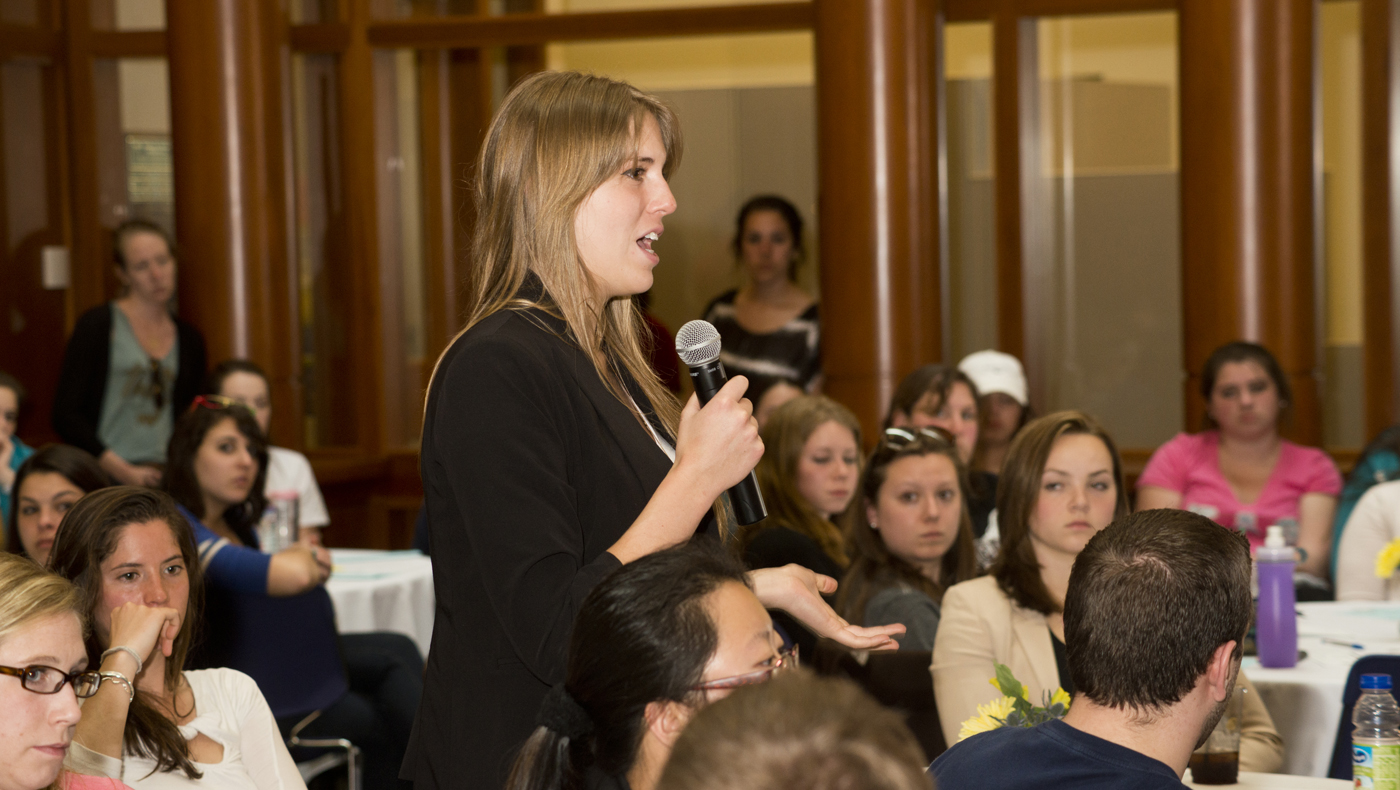
Caroline M. Hoxby is the Scott and Donya Bommer Professor of Economics at Stanford University and a Senior Fellow of the Hoover Institution and the Stanford Institute for Economic Policy Research. Her research spans the field of education economics, including K-12 as well as college. She has been an NBER affiliate since 1994.
Featured Program Content
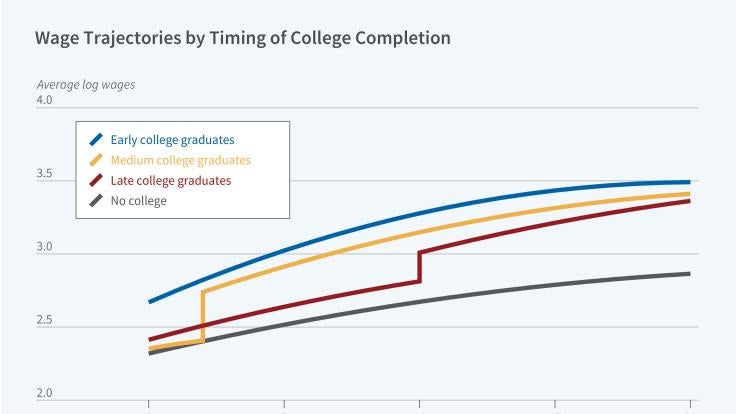
- Authors: Clare Halloran , Claire E. Hug , Rebecca Jack & Emily Oster
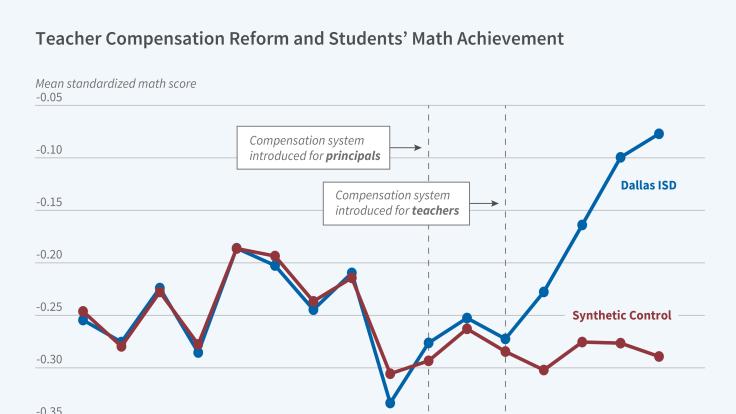
- Authors: Eric A. Hanushek , Jin Luo , Andrew J. Morgan , Minh Nguyen , Ben Ost , Steven G. Rivkin , Ayman Shakeel , Andrew J. Morgan , Minh Nguyen , Eric A. Hanushek , Ben Ost & Steven G. Rivkin et al. (View all)
Department of Educational Administration
- Higher, Adult, and Lifelong Education
- M.A. in Higher, Adult, and Lifelong Education
- M.A. in Student Affairs Administration
- Ph.D. in Higher, Adult, and Lifelong Education
- Ed.D. Leadership for Equity-Minded Change in Postsecondary Education
- All Graduate Programs
- Center for Higher & Adult Education
- HALE Graduate Research Colloquium
- HALE Faculty Research
- HALE Dissertation Abstracts
- K-12 Educational Administration
- Master of Arts in K-12 Educational Administration
- Ed.D. in Educational Leadership
- Ph.D. in K-12 Educational Administration
- Urban Education Graduate Certificate
- Certification Pathway
- K-12 Graduate Research Colloquium
- K-12 Admin Faculty Research
- K-12 Admin Dissertation Abstracts
- University Council for Educational Administration
- Education Policy Doctoral Program
- Economics of Education
- Education Policy Forum
- Education Policy Innovation Collaborative
- Green and Write Blog
- Faculty Research
- Dissertation Abstracts
- Graduate Student Conference Support
- Erickson Chair
- Raines Colloquium
- Focus on Urban Education
- International
- Featherstone Society
- Student Forms & Policies
- Funding & Scholarships
- Faculty Resources
- Requirements
- Our Faculty
- Frequently Asked Questions
- Graduate Placements
The Doctoral Specialization in the Economics of Education is administered by faculty from the Education Policy Unit in the Department of Educational Administration. Students in the program take a series of doctoral-level courses in economics and education policy to provide them with expertise in econometric methods, economic theory and education policy to produce high-quality research on topics in the intersection of economics and education.
Focus on education issues
The foci of the doctoral specialization, both substantive and methodological, is built around work in the economics of education. Education issues include teacher quality, school finance, school choice and the effects of many other factors on student achievement, as well as methodological questions about the estimation of effects in correlational, quasi-experimental and experimental studies.
Who is eligible?
Enrollment in the specialization is open to students enrolled in any doctoral program at Michigan State University. While there are no formal prerequisites, students are expected to have completed undergraduate coursework in statistics, multivariate calculus and linear algebra. Specific courses may have additional requirements or prerequisites. Students who are unsure if they meet these expectations should contact the program coordinator before enrolling.
Course Requirements
Students must complete the following with a 3.5 grade-point average in courses across the specialization (18 credits):
- Both of the following courses with a grade of 3.0 or higher in each course: (6 credits): EC 820A – Econometrics IA (3 credits) EC 820B – Econometrics IB (3 credits)
- One additional 3-credit graduate-level advanced statistics or econometrics course as determined by the student’s guidance committee.
- One of the following courses (3 credits): AFRE 805 – Microeconomic Analysis (3 credits) EC 812A – Microeconomics I (3 credits)
- Both of the following courses (6 credits): EAD 948 – Advanced Economics of Education (3 credits) EAD 949 – Advanced Seminar in Education Policy (3 credits)
- Complete a substantial research paper on a topic in the economics of education as approved by the student’s guidance committee.
Completion Requirements
Upon completion of all coursework and paper requirements, students must initiate an Economics of Education Completion form , used to notify the program administrators that the student has met all of the program requirements.
The student initiates the process. They should fill out the form which is then routed by the student to their guidance committee chair/director. The student and guidance committee member must sign the form, confirming completion of the requirements. The form is then routed to the Economics of Education Coordinator for their signature. Once all signatures are collected, the form should be sent to the Program Assistant at [email protected].
If the student has completed all of the requirements, they must apply to graduate from the specialization. The Graduation Application is now available at student.msu.edu . After clicking on the Academic Progress tile, you will see a link to Apply for Graduation in the left-hand navigation under the Graduation heading. Application for graduation can occur at the time the specialization requirements are complete or at the same time as the student’s doctoral degree.
Application Process
Applicants must be admitted to a doctoral program at Michigan State University. To apply for a specialization in Economics of Education, submit the Intent to Enroll form linked below. Once signed by the applicant and their advisor/guidance committee chairperson, the Intent to Enroll form must be sent to [email protected] or can be mailed to Economics of Education Doctoral Specialization Program, Erickson Hall, 620 Farm Lane, Room 402, E. Lansing, MI 48824.
Professor Scott Imberman
Mailing Address: 486 W Circle Dr. 110 Marshall-Adams Hall Michigan State University East Lansing, MI 48824
Office Location: 25D Marshall-Adams Hall
Phone: 517-355-4667
Email: [email protected]
- Utility Menu
44d3fa3df9f06a3117ed3d2ad6c71ecc
- Administration
econ-hero-6.jpg

The doctoral program in Economics at Harvard University is one of the leading programs in the world. Supported by a diverse group of faculty who are top researchers in their fields and fueled by a vast array of resources, the PhD program is structured to train and nurture students to become leading economists in academia, government agencies, the technology industry, finance and banking, and global policy organizations.
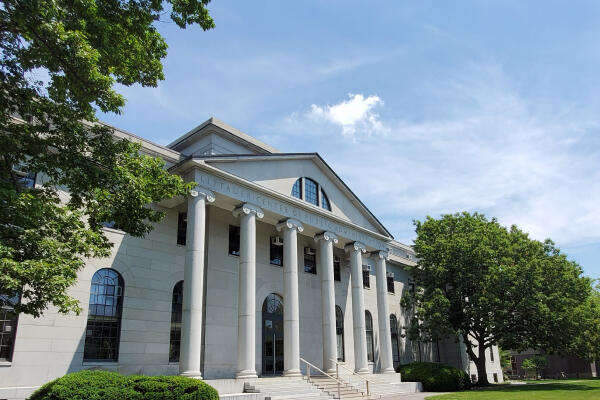
Harvard University and the Department of Economics are regularly ranked amongst the top programs in the world, and the consistency of success among our graduates is inspiring. We have educated several foreign heads of state, Nobel Prize Winners, Clark Medal Winners, MacArthur Fellowship Recipients - many of whom have returned to Harvard to offer their expertise and brilliance in shaping and nurturing our students. Learn more about where we place our graduates and explore our Program to find out if a PhD in Economics is a good fit for you.

Program Requirements
As a PhD student in the Economics program, students will spend the first two years in the program engaged in rigorous coursework designed to develop a foundational understanding of economics. In the following years, students transition to research under the guidance of strong faculty mentorship and participate in field workshops. In the final year, students conduct independent research and complete a dissertation.

The department of Economics at Harvard University is committed to seeking out and mentoring scholars who wish to pursue a rigorous and rewarding career in economic research. Our graduates are trailblazers in their fields and contribute to a diverse alumni community in both the academic and non-academic sectors. We invite you to learn more and apply to the PhD program in Economics.

Financial Support
Students have access to a variety of funding and financial support opportunities.
- Research Funding
- Teaching Fellowships and assistants
- Additional external and internal resources
Learn more about financial support
Upcoming Events
Econ 3005 graduate student workshop in economic development, location: .
Cassandra Cole (Harvard) TBD Ronak Jain (Harvard) 3G Internet and Human Capital Development (with Samuel Stemper)... Read more about ECON 3005 Graduate Student Workshop in Economic Development
ECON 3012 Graduate Student Workshop in Labor Economics and Public Economics
Stephanie Kestelman (Harvard University) "Time to Approve in Real Estate Development"
Louise Paul-Delvaux (Harvard University)... Read more about ECON 3012 Graduate Student Workshop in Labor Economics and Public Economics
Seminar in Finance
Bryan Kelly (Yale University)... Read more about Seminar in Finance
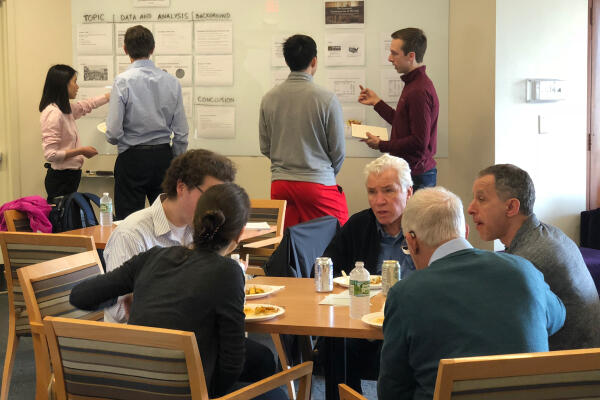
View all Workshops

View all Seminars

The PhD in Economics is a small and focused program, with students concentrating in one of two areas of specialization: Industrial Organization, Competition Policy, and Regulatory Economics and Labor Economics. The program is applied in nature and is designed for students who are considering work in the government and private sectors as well as academic jobs.
In The News

Youth’s Advance in Summer Jobs Program
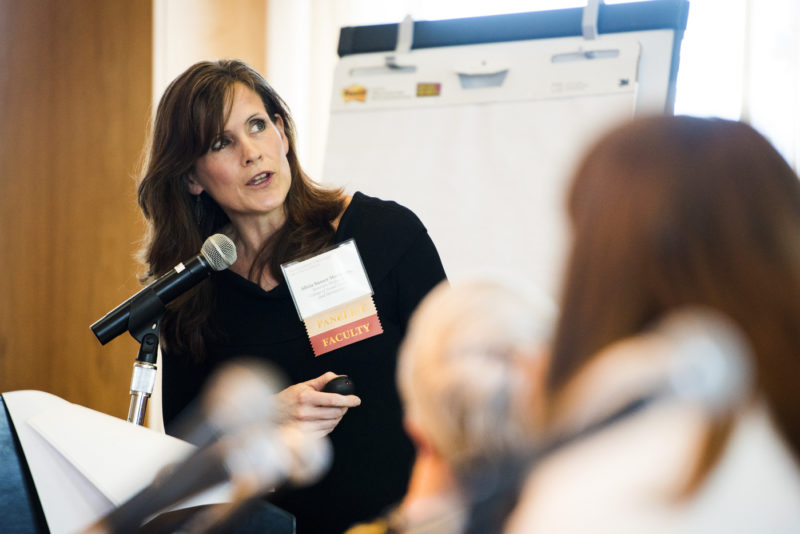
Looking Through the Glass Ceiling

Economics Research Promotes Malaria Testing
Fewer than ten students enter the PhD in Economics program each year. Students may concentrate in either Industrial Organization, Competition Policy, and Regulatory Economics; or Labor Economics. Each field is covered in two semester courses at the PhD level. Admission from the Bachelor’s level requires taking the MA core courses and two additional elective courses plus the PhD requirements.
The field of Industrial Organization, Competition Policy, and Regulatory Economics analyzes and evaluates the performance of markets and devises appropriate policy responses when markets are not performing well. By developing techniques for examining the structure, conduct, and performance of markets, it bridges economic theory and the real world. In addition, it helps to develop and implement antitrust and regulatory policies to remedy failures of those markets.
The field of L abor Economics analyzes the neoclassical labor market, covering such topics as the supply of labor from the perspective of the individual and the family, human capital, the demand for labor, market equilibrium, and the determination and distribution of wages and earnings. Theoretical and empirical issues surrounding current topics in labor economics are examined, and may include discrimination, efficiency wage theory, labor legislation, life cycle analysis and the use of microdata (panel studies), search behavior, intergenerational earnings mobility, and employment and training policies.
Learn more about the PhD program in Economics from the College of Social Sciences and Humanities .
The Economics department faculty engage in research in a wide range of academic and applied areas including industrial organization, competition policy, labor economics, development economics, network science, innovation policy, health, applied game theory, monetary policy, banking, technological change, law and economics, and education. They serve as mentors and advisors, and collaborate alongside students to solve the most pressing global challenges facing established and emerging markets.
- Students may enter the program from a Bachelor’s or Master’s level
- Students concentrate in Industrial Organization, Competition Policy, and Regulatory Economics or Labor Economics
- The department is home to the administrative office of the Industrial Organization Society
Our graduates pursue careers within academia and beyond.
- Analysis Group
- Charles River Associates
- City University of New York (CUNY), Queen’s College
- The Brattle Group
- Ernst and Young
- Federal Trade Commission
- Federal Reserve Bank
- Moody’s Analytics
Application Materials
Application.
- Application fee – US $100
- Personal statement
- Unofficial transcripts from all institutions attended
- English proficiency for international applicants
- Three letters of recommendation
- Scores from the Graduate Record Examination (GRE) – Optional
Admissions deadline for Fall term: December 1
- Program Website
Request Information for PhD in Economics
- Research Centers
- Academic Programs
- Princeton University
- News & Activities
- Prospective Majors
- Major Requirements
- Course Selection
- Independent Work
- Other Rules and Grading Guidelines
- Economics Statistical Services (ESS)
- Minors and Programs
- Study Abroad and Internship Milestone Credit
- Funding, Research Assistant, and Career Opps
- Common Questions
Ph.D. Admissions
Current Students
- Course Offerings
- Job Market and Placements
- Graduate Student Directory
Graduate Program
Ph.d. studies at princeton economics.
The Ph.D. program at Princeton Economics is one of the premier economics programs in the world. The small number of students admitted each year receive training in an exceptional research environment, supported by faculty members who are working at the forefront of research in their fields.
Admission to the program is extremely selective. Each year, the department receives approximately 800 applications for a class of 20 to 25 students. Students come from diverse backgrounds and from dozens of countries around the globe.
Princeton provides all admitted Ph.D. students tuition and fellowship support for the academic year. Admitted students also receive fellowship support through the summer months so they can continue their study and research when classes are not in session.
The Economics Department at Princeton does not offer a Master’s Degree. Students looking for information about the Master in Finance can learn more on the Princeton Bendheim Center for Finance website .
Job Market Placements
About Stanford GSB
- The Leadership
- Dean’s Updates
- School News & History
- Commencement
- Business, Government & Society
- Centers & Institutes
- Center for Entrepreneurial Studies
- Center for Social Innovation
- Stanford Seed
About the Experience
- Learning at Stanford GSB
- Experiential Learning
- Guest Speakers
- Entrepreneurship
- Social Innovation
- Communication
- Life at Stanford GSB
- Collaborative Environment
- Activities & Organizations
- Student Services
- Housing Options
- International Students
Full-Time Degree Programs
- Why Stanford MBA
- Academic Experience
- Financial Aid
- Why Stanford MSx
- Research Fellows Program
- See All Programs
Non-Degree & Certificate Programs
- Executive Education
- Stanford Executive Program
- Programs for Organizations
- The Difference
- Online Programs
- Stanford LEAD
- Seed Transformation Program
- Aspire Program
- Seed Spark Program
- Faculty Profiles
- Academic Areas
- Awards & Honors
- Conferences

Faculty Research
- Publications
- Working Papers
- Case Studies
Research Hub
- Research Labs & Initiatives
- Business Library
- Data, Analytics & Research Computing
- Behavioral Lab
Research Labs
- Cities, Housing & Society Lab
- Golub Capital Social Impact Lab
Research Initiatives
- Corporate Governance Research Initiative
- Corporations and Society Initiative
- Policy and Innovation Initiative
- Rapid Decarbonization Initiative
- Stanford Latino Entrepreneurship Initiative
- Value Chain Innovation Initiative
- Venture Capital Initiative
- Career & Success
- Climate & Sustainability
- Corporate Governance
- Culture & Society
- Finance & Investing
- Government & Politics
- Leadership & Management
- Markets & Trade
- Operations & Logistics
- Opportunity & Access
- Organizational Behavior
- Political Economy
- Social Impact
- Technology & AI
- Opinion & Analysis
- Email Newsletter
Welcome, Alumni
- Communities
- Digital Communities & Tools
- Regional Chapters
- Women’s Programs
- Identity Chapters
- Find Your Reunion
- Career Resources
- Job Search Resources
- Career & Life Transitions
- Programs & Services
- Career Video Library
- Alumni Education
- Research Resources
- Volunteering
- Alumni News
- Class Notes
- Alumni Voices
- Contact Alumni Relations
- Upcoming Events
Admission Events & Information Sessions
- MBA Program
- MSx Program
- PhD Program
- Alumni Events
- All Other Events
- Requirements
- Requirements: Behavioral
- Requirements: Quantitative
- Requirements: Macro
- Requirements: Micro
- Annual Evaluations
- Field Examination
- Research Activities
- Research Papers
- Dissertation
- Oral Examination
- Current Students
- Entering Class Profile
- Education & CV
- GMAT & GRE
- International Applicants
- Statement of Purpose
- Letters of Recommendation
- Reapplicants
- Application Fee Waiver
- Deadline & Decisions
- Job Market Candidates
- Academic Placements
- Stay in Touch
- Fields of Study
- Student Life
Economic Analysis & Policy
Our doctoral program in the field of economic analysis and policy prepares students for research careers in economics. The program offers rigorous training and has several distinct advantages:
Low Student-to-Faculty Ratio
First, enrollment in the program is small. This encourages close faculty-student contact and allows students to become involved in research very early. Students work first as assistants on faculty research projects and, as their interests and skills develop, on their own research. Students often begin their publishing careers before completing their degrees.
Flexible and Innovative Program
Second, the program is flexible and innovative; students can draw on both the school’s and the university’s distinguished faculty. In addition to the faculty in the economics group at Stanford GSB and in the university’s economics department, students have access to faculty in political and behavioral sciences; accounting and finance; mathematics, statistics, and computer science; and many other disciplines.
A Top-Ranked School
Third, the program is part of a top-ranked professional school. This setting allows students to gain a deeper understanding of the actual processes of business decision-making and public policy formulation.
Preparation and Qualifications
Students who enroll in this program have a substantial background in economics and mathematics. They are expected to have, minimally, mathematical skills at the level of one year of advanced calculus and one course each in linear algebra, analysis, probability, optimization, and statistics.
The faculty selects students based on predicted performance in the program. Evidence of substantial background or ability in the use of mathematical reasoning and statistical methods is important. Most successful applicants had quantitative undergraduate majors in economics, mathematics, or related sciences.
In addition to evidence of ability and letters of recommendation, the faculty considers carefully the applicant’s statement of purpose for pursuing the PhD degree. The successful applicant usually has clearly defined career goals that are compatible with those of the program.
Acceptance into the program is extremely competitive. Admitted applicants compare very favorably with students enrolled in the top economics departments of major universities.
Economic Analysis & Policy Faculty
Mohammad akbarpour, claudia allende santa cruz, susan athey, lanier benkard, jeremy i. bulow, modibo khane camara, sebastian di tella, rebecca diamond, yossi feinberg, guido w. imbens, charles i. jones, michael ostrovsky, garth saloner, yuliy sannikov, kathryn shaw, andrzej skrzypacz, paulo somaini, juan carlos suárez serrato, takuo sugaya, christopher tonetti, shoshana vasserman, ali yurukoglu, weijie zhong, emeriti faculty, alain c. enthoven, robert j. flanagan, david m. kreps, peter c. reiss, john roberts, a. michael spence, robert wilson, recent publications in economic analysis & policy, an economic framework for vaccine prioritization, pricing power in advertising markets: theory and evidence, career: a foundation model for labor sequence data, recent insights by stanford business, nine stories to get you through tax season, a.i. can help “personalize” policies to reach the right people, stanford gsb faculty share their holiday reading lists, placement director.
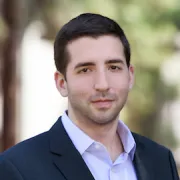
- Priorities for the GSB's Future
- See the Current DEI Report
- Supporting Data
- Research & Insights
- Share Your Thoughts
- Search Fund Primer
- Teaching & Curriculum
- Affiliated Faculty
- Faculty Advisors
- Louis W. Foster Resource Center
- Defining Social Innovation
- Impact Compass
- Global Health Innovation Insights
- Faculty Affiliates
- Student Awards & Certificates
- Changemakers
- Dean Jonathan Levin
- Dean Garth Saloner
- Dean Robert Joss
- Dean Michael Spence
- Dean Robert Jaedicke
- Dean Rene McPherson
- Dean Arjay Miller
- Dean Ernest Arbuckle
- Dean Jacob Hugh Jackson
- Dean Willard Hotchkiss
- Faculty in Memoriam
- Stanford GSB Firsts
- Certificate & Award Recipients
- Teaching Approach
- Analysis and Measurement of Impact
- The Corporate Entrepreneur: Startup in a Grown-Up Enterprise
- Data-Driven Impact
- Designing Experiments for Impact
- Digital Business Transformation
- The Founder’s Right Hand
- Marketing for Measurable Change
- Product Management
- Public Policy Lab: Financial Challenges Facing US Cities
- Public Policy Lab: Homelessness in California
- Lab Features
- Curricular Integration
- View From The Top
- Formation of New Ventures
- Managing Growing Enterprises
- Startup Garage
- Explore Beyond the Classroom
- Stanford Venture Studio
- Summer Program
- Workshops & Events
- The Five Lenses of Entrepreneurship
- Leadership Labs
- Executive Challenge
- Arbuckle Leadership Fellows Program
- Selection Process
- Training Schedule
- Time Commitment
- Learning Expectations
- Post-Training Opportunities
- Who Should Apply
- Introductory T-Groups
- Leadership for Society Program
- Certificate
- 2023 Awardees
- 2022 Awardees
- 2021 Awardees
- 2020 Awardees
- 2019 Awardees
- 2018 Awardees
- Social Management Immersion Fund
- Stanford Impact Founder Fellowships and Prizes
- Stanford Impact Leader Prizes
- Social Entrepreneurship
- Stanford GSB Impact Fund
- Economic Development
- Energy & Environment
- Stanford GSB Residences
- Environmental Leadership
- Stanford GSB Artwork
- A Closer Look
- California & the Bay Area
- Voices of Stanford GSB
- Business & Beneficial Technology
- Business & Sustainability
- Business & Free Markets
- Business, Government, and Society Forum
- Get Involved
- Second Year
- Global Experiences
- JD/MBA Joint Degree
- MA Education/MBA Joint Degree
- MD/MBA Dual Degree
- MPP/MBA Joint Degree
- MS Computer Science/MBA Joint Degree
- MS Electrical Engineering/MBA Joint Degree
- MS Environment and Resources (E-IPER)/MBA Joint Degree
- Academic Calendar
- Clubs & Activities
- LGBTQ+ Students
- Military Veterans
- Minorities & People of Color
- Partners & Families
- Students with Disabilities
- Student Support
- Residential Life
- Student Voices
- MBA Alumni Voices
- A Week in the Life
- Career Support
- Employment Outcomes
- Cost of Attendance
- Knight-Hennessy Scholars Program
- Yellow Ribbon Program
- BOLD Fellows Fund
- Application Process
- Loan Forgiveness
- Contact the Financial Aid Office
- Evaluation Criteria
- English Language Proficiency
- Personal Information, Activities & Awards
- Professional Experience
- Optional Short Answer Questions
- Application Fee
- Reapplication
- Deferred Enrollment
- Joint & Dual Degrees
- Event Schedule
- Ambassadors
- New & Noteworthy
- Ask a Question
- See Why Stanford MSx
- Is MSx Right for You?
- MSx Stories
- Leadership Development
- Career Advancement
- Career Change
- How You Will Learn
- Admission Events
- Personal Information
- Information for Recommenders
- GMAT, GRE & EA
- English Proficiency Tests
- After You’re Admitted
- Daycare, Schools & Camps
- U.S. Citizens and Permanent Residents
- Faculty Mentors
- Current Fellows
- Standard Track
- Fellowship & Benefits
- Group Enrollment
- Program Formats
- Developing a Program
- Diversity & Inclusion
- Strategic Transformation
- Program Experience
- Contact Client Services
- Campus Experience
- Live Online Experience
- Silicon Valley & Bay Area
- Digital Credentials
- Faculty Spotlights
- Participant Spotlights
- Eligibility
- International Participants
- Stanford Ignite
- Frequently Asked Questions
- Operations, Information & Technology
- Classical Liberalism
- The Eddie Lunch
- Accounting Summer Camp
- Videos, Code & Data
- California Econometrics Conference
- California Quantitative Marketing PhD Conference
- California School Conference
- China India Insights Conference
- Homo economicus, Evolving
- Political Economics (2023–24)
- Scaling Geologic Storage of CO2 (2023–24)
- A Resilient Pacific: Building Connections, Envisioning Solutions
- Adaptation and Innovation
- Changing Climate
- Civil Society
- Climate Impact Summit
- Climate Science
- Corporate Carbon Disclosures
- Earth’s Seafloor
- Environmental Justice
- Operations and Information Technology
- Organizations
- Sustainability Reporting and Control
- Taking the Pulse of the Planet
- Urban Infrastructure
- Watershed Restoration
- Junior Faculty Workshop on Financial Regulation and Banking
- Ken Singleton Celebration
- Marketing Camp
- Quantitative Marketing PhD Alumni Conference
- Presentations
- Theory and Inference in Accounting Research
- Stanford Closer Look Series
- Quick Guides
- Core Concepts
- Journal Articles
- Glossary of Terms
- Faculty & Staff
- Researchers & Students
- Research Approach
- Charitable Giving
- Financial Health
- Government Services
- Workers & Careers
- Short Course
- Adaptive & Iterative Experimentation
- Incentive Design
- Social Sciences & Behavioral Nudges
- Bandit Experiment Application
- Conferences & Events
- Reading Materials
- Energy Entrepreneurship
- Faculty & Affiliates
- SOLE Report
- Responsible Supply Chains
- Current Study Usage
- Pre-Registration Information
- Participate in a Study
- Founding Donors
- Location Information
- Participant Profile
- Network Membership
- Program Impact
- Collaborators
- Entrepreneur Profiles
- Company Spotlights
- Seed Transformation Network
- Responsibilities
- Current Coaches
- How to Apply
- Meet the Consultants
- Meet the Interns
- Intern Profiles
- Collaborate
- Research Library
- News & Insights
- Program Contacts
- Databases & Datasets
- Research Guides
- Consultations
- Research Workshops
- Career Research
- Research Data Services
- Course Reserves
- Course Research Guides
- Material Loan Periods
- Fines & Other Charges
- Document Delivery
- Interlibrary Loan
- Equipment Checkout
- Print & Scan
- MBA & MSx Students
- PhD Students
- Other Stanford Students
- Faculty Assistants
- Research Assistants
- Stanford GSB Alumni
- Telling Our Story
- Staff Directory
- Site Registration
- Alumni Directory
- Alumni Email
- Privacy Settings & My Profile
- Success Stories
- The Story of Circles
- Support Women’s Circles
- Stanford Women on Boards Initiative
- Alumnae Spotlights
- Insights & Research
- Industry & Professional
- Entrepreneurial Commitment Group
- Recent Alumni
- Half-Century Club
- Fall Reunions
- Spring Reunions
- MBA 25th Reunion
- Half-Century Club Reunion
- Faculty Lectures
- Ernest C. Arbuckle Award
- Alison Elliott Exceptional Achievement Award
- ENCORE Award
- Excellence in Leadership Award
- John W. Gardner Volunteer Leadership Award
- Robert K. Jaedicke Faculty Award
- Jack McDonald Military Service Appreciation Award
- Jerry I. Porras Latino Leadership Award
- Tapestry Award
- Student & Alumni Events
- Executive Recruiters
- Interviewing
- Land the Perfect Job with LinkedIn
- Negotiating
- Elevator Pitch
- Email Best Practices
- Resumes & Cover Letters
- Self-Assessment
- Whitney Birdwell Ball
- Margaret Brooks
- Bryn Panee Burkhart
- Margaret Chan
- Ricki Frankel
- Peter Gandolfo
- Cindy W. Greig
- Natalie Guillen
- Carly Janson
- Sloan Klein
- Sherri Appel Lassila
- Stuart Meyer
- Tanisha Parrish
- Virginia Roberson
- Philippe Taieb
- Michael Takagawa
- Terra Winston
- Johanna Wise
- Debbie Wolter
- Rebecca Zucker
- Complimentary Coaching
- Changing Careers
- Work-Life Integration
- Career Breaks
- Flexible Work
- Encore Careers
- D&B Hoovers
- Data Axle (ReferenceUSA)
- EBSCO Business Source
- Global Newsstream
- Market Share Reporter
- ProQuest One Business
- Student Clubs
- Entrepreneurial Students
- Stanford GSB Trust
- Alumni Community
- How to Volunteer
- Springboard Sessions
- Consulting Projects
- 2020 – 2029
- 2010 – 2019
- 2000 – 2009
- 1990 – 1999
- 1980 – 1989
- 1970 – 1979
- 1960 – 1969
- 1950 – 1959
- 1940 – 1949
- Service Areas
- ACT History
- ACT Awards Celebration
- ACT Governance Structure
- Building Leadership for ACT
- Individual Leadership Positions
- Leadership Role Overview
- Purpose of the ACT Management Board
- Contact ACT
- Business & Nonprofit Communities
- Reunion Volunteers
- Ways to Give
- Fiscal Year Report
- Business School Fund Leadership Council
- Planned Giving Options
- Planned Giving Benefits
- Planned Gifts and Reunions
- Legacy Partners
- Giving News & Stories
- Giving Deadlines
- Development Staff
- Submit Class Notes
- Class Secretaries
- Board of Directors
- Health Care
- Sustainability
- Class Takeaways
- All Else Equal: Making Better Decisions
- If/Then: Business, Leadership, Society
- Grit & Growth
- Think Fast, Talk Smart
- Spring 2022
- Spring 2021
- Autumn 2020
- Summer 2020
- Winter 2020
- In the Media
- For Journalists
- DCI Fellows
- Other Auditors
- Academic Calendar & Deadlines
- Course Materials
- Entrepreneurial Resources
- Campus Drive Grove
- Campus Drive Lawn
- CEMEX Auditorium
- King Community Court
- Seawell Family Boardroom
- Stanford GSB Bowl
- Stanford Investors Common
- Town Square
- Vidalakis Courtyard
- Vidalakis Dining Hall
- Catering Services
- Policies & Guidelines
- Reservations
- Contact Faculty Recruiting
- Lecturer Positions
- Postdoctoral Positions
- Accommodations
- CMC-Managed Interviews
- Recruiter-Managed Interviews
- Virtual Interviews
- Campus & Virtual
- Search for Candidates
- Think Globally
- Recruiting Calendar
- Recruiting Policies
- Full-Time Employment
- Summer Employment
- Entrepreneurial Summer Program
- Global Management Immersion Experience
- Social-Purpose Summer Internships
- Process Overview
- Project Types
- Client Eligibility Criteria
- Client Screening
- ACT Leadership
- Social Innovation & Nonprofit Management Resources
- Develop Your Organization’s Talent
- Centers & Initiatives
- Student Fellowships

PhD Program
Year after year, our top-ranked PhD program sets the standard for graduate economics training across the country. Graduate students work closely with our world-class faculty to develop their own research and prepare to make impactful contributions to the field.
Our doctoral program enrolls 20-24 full-time students each year and students complete their degree in five to six years. Students undertake core coursework in microeconomic theory, macroeconomics, and econometrics, and are expected to complete two major and two minor fields in economics. Beyond the classroom, doctoral students work in close collaboration with faculty to develop their research capabilities, gaining hands-on experience in both theoretical and empirical projects.
How to apply
Students are admitted to the program once per year for entry in the fall. The online application opens on September 15 and closes on December 15.
Meet our students
Our PhD graduates go on to teach in leading economics departments, business schools, and schools of public policy, or pursue influential careers with organizations and businesses around the world.
Ph.D. Program
Make an impact: The intellectual rigor from researchers associated with Yale Economics drives innovations in domestic and international policy.

- Requirements
Yale's Department of Economics offers a challenging and rigorous academic program, a distinguished and accessible faculty, and a friendly, supportive environment for study.
Our core teaching faculty of 66 is supported by a diverse group of visiting professors and graduate student teaching assistants, making it one of the largest economics departments in the United States with one of the highest teacher/student ratios for the 130 Ph.D. students in residence.
The Department of Economics also has close ties with professional schools in related fields, such as the Yale School of Management, the Yale School of the Environment, and the Yale School of Public Health, where many of its secondary faculty members teach. It also works with affiliated centers, including the Cowles Foundation for Research in Economics, the Economic Growth Center, and the newly created Tobin Center for Economic Policy .
- The Program
- Prospective Students
- Milestones and Timeline
- Student Resources
- Student Directory
Our Program
Yale's economics faculty embraces a broad range of research and teaching interests. Courses and seminars span a wide spectrum of economics, from dynamic structural models to field experiments. Our students apply econometric and data analytic methods to a variety of subjects in macroeconomics, labor economics and finance. Our courses examine critical economic policy issues, including antitrust and environmental regulation. Our focus is global, spanning the United States and developed economies to the developing nations of Latin America, Asia and Africa. Whatever your interest, our faculty is ready to guide you through a wide offering of more than a hundred regular courses, seminars or workshops, combined with individually tailored reading and research courses to best prepare you for your Ph.D. research and dissertation.
Our faculty is eclectic in methodologies and views of economics. There is no Yale dogma or school. You will acquire a critical perspective on the full range of approaches to macroeconomics. You will be well trained in neoclassical theory and in the theory of public choice, externalities and market failures. You will master the skills of sophisticated modern econometrics and understand pitfalls in its applications. You will gain respect for the power of contemporary mathematical models and also for history and for the insights of the great economists of the past.

Fields of Study
Important dates.
Dec. 21, Wed. Fall Term ends, Winter Recess begins.
Dec. 22 Thurs. Date of December degree award
Jan. 12, Thurs. Add/drop period opens, 8:30 am
Full calendar
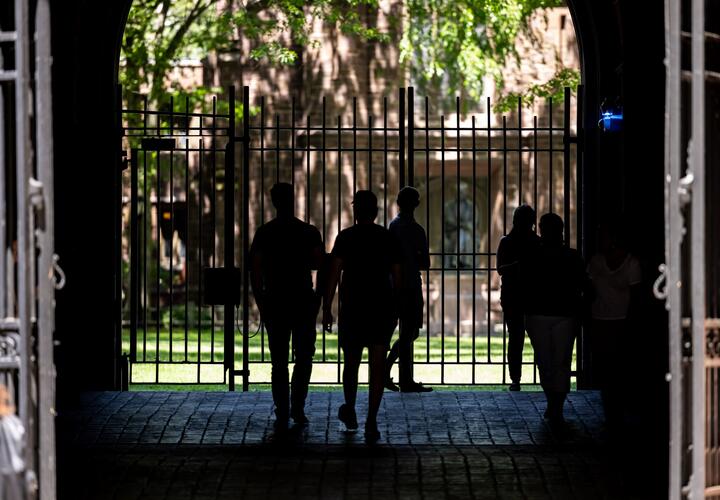

About the Ph.D. Program
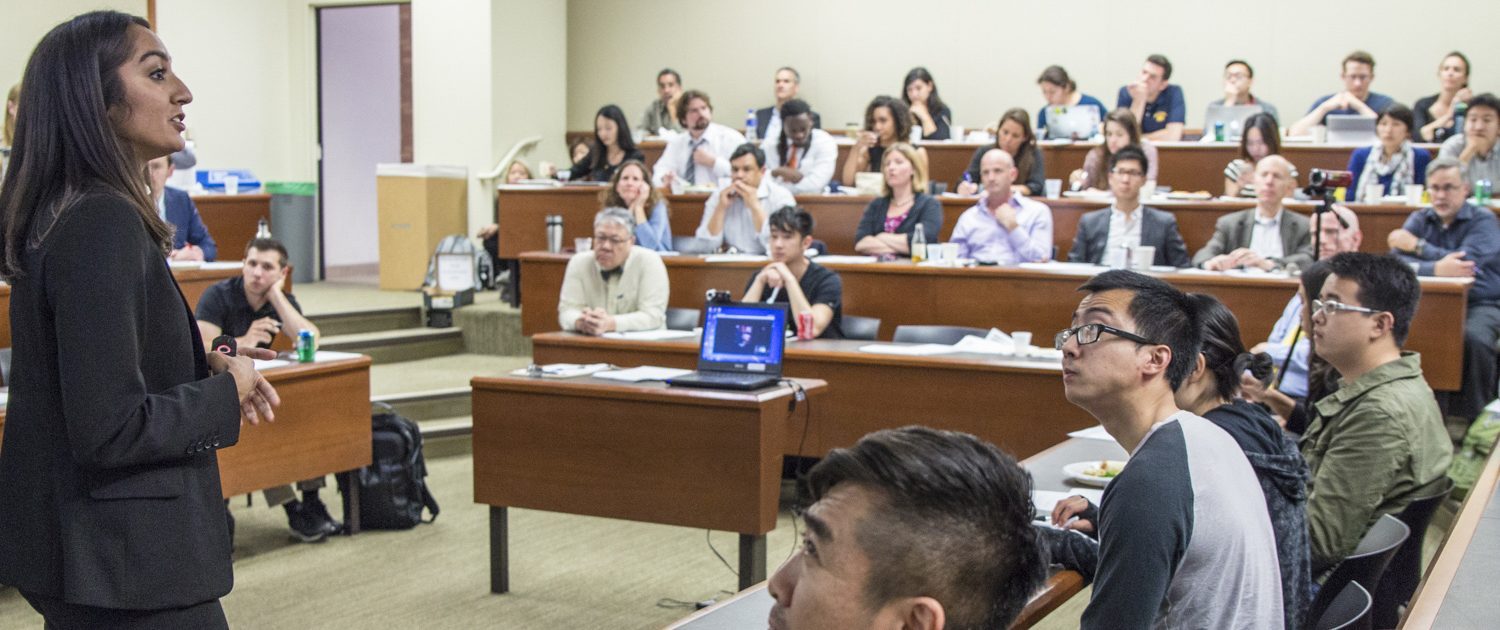
The Ph.D. Program in Economics at UCLA prepares students for careers as economists in academia, business and government. The program combines rigorous work in economic theory and careful study of real-world problems and institutions. Graduates from this program work at major universities around the world, national and international government agencies, banks, research centers and in private businesses. Some of our graduates have achieved great prominence, such as William Sharpe , who earned both his B.A. and Ph.D. degrees at UCLA, and was co-recipient of the 1990 Nobel Prize in Economics for his work on the capital asset pricing model.
The department includes internationally recognized scholars in economic theory, econometrics, and all the major applied fields. These outstanding scholars form one of the foremost departments of economics in the world.
The Economics Department is situated within one of the world’s most youthful and vibrant universities. Founded in 1919, UCLA first developed into a major university in the 1950’s. After so short a history, the university was ranked second in the United States among public research universities by the Conference Board of Associated Research Councils in 1982. Thirty-one of its Ph.D. programs are currently ranked in the top 20 in their field–third best in the nation.
The Ph.D. is the degree objective of the graduate program. This degree is awarded to students who demonstrate professional competence by passing written qualifying exams and by completing a major piece of individual research (the Ph.D. dissertation).
Preparation for the qualifying exams through coursework and independent study occupies most student time for the first two years. Thereafter the focus shifts to independent research and finally to the writing of a Ph.D. dissertation. Research in progress by our graduate students as well as our faculty is presented at workshops that meet weekly throughout the academic year. Currently, the Dept. has workshops in Theory and Mathematical Economics, International and Development Economics, Labor and Population Economics, Business Organization and Regulation Economics, Economic History, Econometrics, and Monetary Theory. In addition, many graduate students work as research or teaching assistants for faculty members. The normal time to degree is six years.
This degree program classifies as STEM (CIP Code 45.0603: Econometrics and Quantitative Economics).

UCLA Department of Economics
8283 Bunche Hall Mail Stop: 147703 Los Angeles, CA 90095
Campus Resources
- Academic Calendar
- Maps, Directions, Parking
- University of California
- Terms of Use
- Injury & Illness Prevention Program
Internal Resources Manager’s Manual Admin Login Webmail (O365 Server) Contact Webmaster
- About the Department
- Administration
- Board of Visitors
- Department Newsletters
- Ladder Faculty
- Courtesy Faculty
- In Memoriam
- Recent Publications
- Research Spotlight
- Economics Major
- Business Economics Major
- Declare our Majors
- Degree Planning
- Benjamin Graham Value Investing Program
- Enrollment Procedures
- Frequently Asked Questions
- Student Wellness & Community
- Department of Economics Commencement 2023
- Course Descriptions
- Economics Class Schedule
- Learning Objectives
- Common Syllabus
- Non-UCLA Course Credit
- Econ Summer Courses for 2024
- Departmental Honors
- Departmental Scholar
- Departmental Scholarships
- Career Pathways
- Fellowships
- Career Center
- Internships
- Research Opportunities
- Preparing for a Ph.D. in Economics
- EDI Courses in Economics
- EDI Research
- EDI Resources for Students
- Incoming Undergraduates
- Why Study Economics?
- Freshmen Information
- Transfers Information
- Economics Courses
- Graduate Handbook
- Graduate Student Awards
- Standards and Procedures
- Second Year
- Thesis Writing
- TA Resources
- Job Market Prep
- Grad Econ Association
- Computing Resources
- Placement History
- Job Market Candidates
- Graduate Counseling Office
- Commencement videos
- Alumni Career Engagement
- UCLA Alumni Affairs
- Update Your Information
- Alumni Interviews
- Women in Business
- Proseminars

Purdue’s Daniels School offers a PhD in Economics which develops core competencies in microeconomics, macroeconomics and econometrics, while allowing students to choose specialized study in a variety of different fields. The Economics PhD is well-suited for those interested in rigorous application of mathematical tools to better understand decisions made by individuals and firms, and to evaluate economic policies.
By collaborating with renowned faculty in the areas of econometrics, experimental and behavioral economics, industrial organization, international trade, labor economics, macroeconomics, and public economics, our doctoral students go on to conduct frontier research at leading universities, shape public policy and influence business strategy.
Grounded in a strong methodological and quantitative orientation, our PhD program broadens students’ understanding of economic issues, provides an opportunity for individualized research and specialization, and sharpens critical thinking skills.
Download the Fact Sheet
Request More Information
Most Trusted #4
Morning Consult, 2022
Best Value School #7
The Wall Street Journal / Times Higher Education, 2022
Most Innovative School in the U.S. Top 10
US News and World Report, 2023
Want to Learn More?
If you would like to receive more information about doctoral study in Economics, please fill out the form and an Admissions Specialist will be in touch to connect you with a department representative!
Contact us for more information [email protected]
Program Details
Faculty and Students

_linkedin_partner_id = "1170812"; window._linkedin_data_partner_ids = window._linkedin_data_partner_ids || []; window._linkedin_data_partner_ids.push(_linkedin_partner_id); (function(){var s = document.getElementsByTagName("script")[0]; var b = document.createElement("script"); b.type = "text/javascript";b.async = true; b.src = "https://snap.licdn.com/li.lms-analytics/insight.min.js"; s.parentNode.insertBefore(b, s);})(); School of Education

Graduate Programs Doctor of Philosophy (Ph.D.) in Economic Education
This Ph.D. program is on moratorium and no longer accepting new students. This page is for students admitted to the program prior to Fall 2021.
An Interdisciplinary Program for Leaders in Economic Education
The doctorate in economic education is designed to train the next generation of leaders in this fast-growing field. It is a joint program of Lerner’s economics department and the School of Education.
The field of economic education focuses on developing and evaluating economic and financial literacy programs and curricula in the K-12 school system, universities and a wide variety of outreach programs.
Traditionally, professionals and scholars in this field have been trained in either economics or education, with little or no formal training in the other area. This is no longer adequate. The increasing complexity and importance of economics in today’s world requires scholars and leaders who have a deeper understanding of both disciplines.
The program draws on the strengths of the University of Delaware’s economics and education graduate programs and on UD’s nationally-recognized Center for Economic Education and Entrepreneurship.
Program Highlights
The curriculum is evenly balanced between coursework in economics and education. The elective options allow you to specialize in one area or the other, depending on your interests and strengths.
The program can be completed in four years following a B.A., although the typical student takes five years to complete the degree. Students with substantial prior graduate training in economics or education can complete the program in three years.
Program Coordinator: Elizabeth Farley-Ripple (Education) and Thomas Bridges (Economics)
Student Spotlight
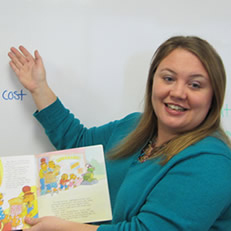
Erin Yetter
Erin Yetter, the first ever graduate of UD’s doctorate in economic education program, won the Journal of Economics Teaching’s 2016 Best Paper Award for her paper, “Using the Berenstain Bears to Teach Economics in the Elementary Classroom.” She works as an economic education specialist with the Federal Reserve Bank of St. Louis, Louisville Branch where she writes curriculum materials, conducts professional development for teachers and continues to research student learning of economic concepts.
Program Faculty
Program requirements.
Graduate students are required to be registered for courses every semester, including the semester in which their degree is conferred, unless they are on an approved Leave of Absence. The program requires a minimum of 45 graduate-level credits.
Economic Theory & Statistical Methods Competency Courses
All students must demonstrate graduate-level competence in economic theory and in statistical methods by completing the following UD courses or by seeking waivers for previously completed coursework. The Department of Economics has sole authority to award waivers for economics courses and the School of Education has sole authority to award waivers for education courses.
- ECON 801 – Microeconomics
- ECON 802 – Macroeconomics
- ECON 803 – Applied Econometrics I
- ECON 804 – Applied Econometrics II
- EDUC 856 – Introduction to Statistical Inference
Required Courses
As indicated above, some students will also take additional courses in economic theory and in statistical methods.
- EDUC 805 – Proseminar in Education I
- EDUC 806 – Proseminar in Education II
- EDUC 850 – Qualitative Research in Educational Settings
- EDUC 812, 826, 865, 873 or 874
- EDUC 840 – Research Colloquium in Education
- 2 EDUC electives
- ECON 820 – Economics of Education Policy
- ECON 829 – Economic Education Curricula
- 2 ECON electives
- Free elective
- ECON/EDUC 964 and 969, dissertation (9 credits)
Sample Student Schedules
- Sample schedule for students with no course waivers
- Sample schedule for students with maximum course waivers (ECON801, 802, 803, 804, EDUC 856)
Career Opportunities
As a graduate of our program, you will have a wide range of professional and academic employment opportunities, including:
- University departments of economics and education
- Councils and centers for economic education (approximately 200 nationally, most affiliated with universities)
- Education units within regional Federal Reserve banks and other private sector businesses and foundations with an interest in economic and financial education
- School districts and state departments of education
- Education consulting and evaluation firms
Where Our Graduates Work
The doctorate in economic education is a relatively new program at the University of Delaware. Our first graduate completed her doctorate in 2013. She is currently employed as an economic education specialist with the Louisville Branch of the Federal Reserve Bank of St. Louis. Our second graduate completed her degree in 2016 and is on the faculty of the Department of Economics at Michigan State University. A recent 2017 graduate is currently employed in UD’s Center for Economic Education and Entrepreneurship.
Alumni Profile
Lauren ahlstrom.
“The Ph.D. in Economic Education program at UD was a great fit. My coursework and experiences at UD combined my love of economics with my passion for education and provided me with a strong foundation of skills as a scholar in my field. When I was beginning to write the literature review for my dissertation, a professor on my committee gave me some excellent advice. She encouraged me to think of the literature review like a funnel that should begin with a general overview of the research, moving to a narrower focus. As a result, I explored research outside of my primary field of economic education, which gave me a much broader perspective and understanding of the questions I was studying.”
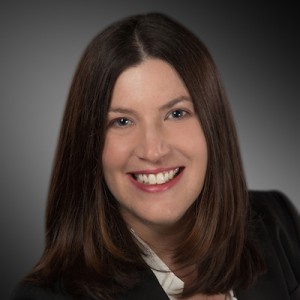
Request More Information
Visit Campus
Awards and Scholarships
- Major and Minors
- Graduate Programs
- Prospective Students
- Academic Calendar
- Social Media
- 113 Willard Hall Education Building , Newark, DE 19716
- Phone: (302) 831-8695
- Fax: (302) 831-4110

Master in Public Administration
Prepare for greater responsibility across sectors with this flexible two-year program
Key Program Information
Program Length: Two years (varies for students pursuing concurrent degrees)
Degree Awarded: Master in Public Administration
Admission Application Deadline: December 2024
Financial Aid Application Deadline: January 2025
Contact the MPA Program
79 John F. Kennedy Street Littauer Building, Room 126 Cambridge, Massachusetts 02138
Elevate your impact as a public leader
The Master in Public Administration Program is for aspiring leaders with real-world experience and graduate-level coursework in economics, public policy, or management.
The Master in Public Administration (MPA) curriculum is flexible. You create a study plan that reflects your academic interests, focuses on your personal and professional aspirations, and integrates across disciplines.
You may also decide to pursue a concurrent degree in business, law, medicine, or other professional fields. You’ll earn two degrees in less time and acquire even more skills you can use to make a difference in the world.
“HKS provided opportunities for me to expand the narrative of what diversity looks like in foreign policy and foreign service.” —Korde Innis MPA 2023
About the MPA Program
The MPA curriculum is flexible. You’ll create your own 64-credit study plan that reflects your academic interests and professional aspirations.
As an MPA student, you’ll take eight credits in a Policy Area of Concentration as well as four credits in each of these key areas:
- Economics and Quantitative Analysis
- Management, Leadership, and Decision Sciences
- Public Ethics and Political Institutions
You’ll select your remaining credits to support your unique intellectual and professional objectives. You can take classes across academic disciplines at HKS and cross-register into courses at other Harvard graduate schools as well as at MIT Sloan School of Management and The Fletcher School at Tufts University.
Sample Courses
- MLD-223: Negotiating Across Differences
- API-135: Economics of Climate Change and Environmental Policy
- DPI-640: Technology and the Public Interest: From Democracy to Technocracy and Back
Concurrent Degrees
You might consider pursuing a second degree concurrently if you’re interested in how the world’s public challenges can be addressed at the intersection of business, law, medicine, design, or other fields.
Pursuing a concurrent degree reduces coursework and residency requirements and makes it possible to earn two degrees in a shorter amount of time.
Concurrent degree students complete 48 credits at HKS, including four credits in each of the key areas:
Concurrent degree students are not required to fulfill the Policy Area of Concentration requirement.
Degree Requirements
The MPA Program consists of four semesters of full-time coursework in residence at HKS.
To graduate, you must:
- Earn at least 64 credits
- Finish with a GPA of B or better
- Earn a B- or higher in all courses counting towards the distribution requirements
- Matriculate as a full-time, in-residence student and take between 12-20 credits per semester
- Fulfill a Policy Area of Concentration requirement by taking eight credits in one of the policy areas at HKS
- Economics and Quantitative Analysis
HKS faculty members are among the most influential leaders and thinkers in their fields. They have contributed vital research and scholarship to their fields. Served in U.S. administrations. Founded learning labs to assist local communities. Led negotiations to reduce nuclear stockpiles. Reported on human rights abuses. Led efforts to address climate change. Advised governments and companies on gender equality.
They are doers as well as thinkers, shaping public policy and devising entrepreneurial approaches to public problems at the local, national, and international levels.
MPA Faculty Chair

Kessely Hong
Mpa at a glance.
*Statistics are based on a five-year average.
Employment Snapshot: MPA Class of 2023 Employment Sectors

* The number of private sector jobs secured by MPA graduates is, in large part, a reflection of the program’s many concurrent degree graduates.
Featured MPA stories
Elevating the stories of diverse, unsung women.
Jamie Mittleman MPA 2022 launched her COVID-adapted dream job: a platform for women Olympians and Paralympians.
A long military heritage shapes a desire for peace
Clark Yuan MPA 2022 wants unique perspectives to have a seat at the table when critical decisions are being made.
From Santiago to Cambridge to Paris
For Ingrid Olea MPA 2020, a journey that started with a career change has led to remarkable achievements in education policymaking.
Applying to the MPA Program
Prerequisites.
There are specific academic and professional prerequisites required to apply to the MPA Program. You must have:
- A bachelor’s degree with a strong academic record
- Three years of professional work experience by September 1 of the year you would enroll in the program
- Master of Business Administration
- Master of International Business
- Master of International Development
- Master of International Economics
- Master of Science in Engineering
How to Apply
A complete application to the MPA Program includes the following:
- Online application
- Three letters of recommendation
- GRE or GMAT required
- Non-native English speakers who did not earn an undergraduate degree conducted in English must submit results of the TOEFL, IELTS, or Cambridge English exam
- Academic transcripts
- $100 application fee or waiver
Read more about how to apply .
The application for the 2025-2026 academic year will be available in September 2024. There is one admission application deadline and one start date for each degree program per year. You may apply to only one master's degree program per admissions cycle.
Tuition & Fees
The cost of attendance for the 2024-2025 academic year is outlined in Funding Your Master ’ s Education to help you plan financially for our master’s degree programs. Living expense costs are based on residence in Cambridge. The 2025-2026 academic year rates will be published in March 2025. HKS tuition and fees are subject to change without notice.
At HKS, we consider financing your education to be a partnership and are here to help guide you. We encourage you to explore all opportunities for funding .
Learn more about the HKS community
Student life, student stories, admissions & financial aid blog.
Best Global Universities for Mechanical Engineering in Russia
These are the top universities in Russia for mechanical engineering, based on their reputation and research in the field. Read the methodology »
To unlock more data and access tools to help you get into your dream school, sign up for the U.S. News College Compass !
Here are the best global universities for mechanical engineering in Russia
Tomsk polytechnic university.
See the full rankings
- Clear Filters
- # 74 in Best Universities for Mechanical Engineering
- # 879 in Best Global Universities (tie)

IMAGES
VIDEO
COMMENTS
Teachers College, Columbia University, is the first and largest graduate school of education in the United States, and also perennially ranked among the nation's best. ... Economics and Education PhD; Doctor of Philosophy in Economics and Education. Admissions Information. Displaying requirements for the Spring 2024, Summer 2024, and Fall 2024 ...
Economics of Education (PhD) Atila Abdulkadiroglu. Wednesday. 9:00am-11:50am. Syllabus. This course is a PhD level introduction to the economics of education. It introduces microeconomic theories of returns to education and frontier econometric methods that are employed in investigating issues in education. The course pays attention to causal ...
579 Jane Stanford Way . Stanford, CA 94305 . Phone: 650-725-3266 . econ[at] stanford.edu(econ[at]stanford[dot]edu) . Connect with us on Twitter . Campus Map. "The Stanford Economics Department has two central missions: to train students at the undergraduate and graduate level in the methods and ideas of modern economics, and to conduct both ...
The doctorate in economic education is designed to train the next generation of leaders in this fast-growing field. It is a joint program of Lerner's economics department and the College of Education and Human Development. The field of economic education focuses on developing and evaluating economic and financial literacy programs and ...
Doctoral Program. The Ph.D. program is a full time program leading to a Doctoral Degree in Economics. Students specialize in various fields within Economics by enrolling in field courses and attending field specific lunches and seminars. Students gain economic breadth by taking additional distribution courses outside of their selected fields of ...
Caroline M. Hoxby is the Scott and Donya Bommer Professor of Economics at Stanford University and a Senior Fellow of the Hoover Institution and the Stanford Institute for Economic Policy Research. Her research spans the field of education economics, including K-12 as well as college. She has been an NBER affiliate since 1994.
The Ph.D. Program in the Department of Economics at Harvard is addressed to students of high promise who wish to prepare themselves in teaching and research in academia or for responsible positions in government, research organizations, or business enterprises. Students are expected to devote themselves full-time to their programs of study.
Office Location: 25D Marshall-Adams Hall. Phone: 517-355-4667. Email: [email protected]. The Doctoral Specialization in the Economics of Education is administered by faculty from the Education Policy Unit in the Department of Educational Administration. Students in the program take a series of doctoral-level courses in economics and education ...
Graduate The doctoral program in Economics at Harvard University is one of the leading programs in the world. Supported by a diverse group of faculty who are top researchers in their fields and fueled by a vast array of resources, the PhD program is structured to train and nurture students to become leading economists in academia, government agencies, the technology industry, finance and ...
The PhD in Economics is a small and focused program, with students concentrating in one of two areas of specialization: Industrial Organization, Competition Policy, and Regulatory Economics and Labor Economics. The program is applied in nature and is designed for students who are considering work in the government and private sectors as well as ...
The Ph.D. program at Princeton Economics is one of the premier economics programs in the world. The small number of students admitted each year receive training in an exceptional research environment, supported by faculty members who are working at the forefront of research in their fields. Admission to the program is extremely selective. Each ...
Students who enroll in this program have a substantial background in economics and mathematics. They are expected to have, minimally, mathematical skills at the level of one year of advanced calculus and one course each in linear algebra, analysis, probability, optimization, and statistics. The faculty selects students based on predicted ...
PhD Program. Year after year, our top-ranked PhD program sets the standard for graduate economics training across the country. Graduate students work closely with our world-class faculty to develop their own research and prepare to make impactful contributions to the field. Our doctoral program enrolls 20-24 full-time students each year and ...
Ph.D. Program. Make an impact: The intellectual rigor from researchers associated with Yale Economics drives innovations in domestic and international policy. Yale's Department of Economics offers a challenging and rigorous academic program, a distinguished and accessible faculty, and a friendly, supportive environment for study.
About the Ph.D. Program. The Ph.D. Program in Economics at UCLA prepares students for careers as economists in academia, business and government. The program combines rigorous work in economic theory and careful study of real-world problems and institutions. Graduates from this program work at major universities around the world, national and ...
Purdue's Daniels School offers a PhD in Economics which develops core competencies in microeconomics, macroeconomics and econometrics, while allowing students to choose specialized study in a variety of different fields. The Economics PhD is well-suited for those interested in rigorous application of mathematical tools to better understand decisions made by individuals and firms, and to ...
The doctorate in economic education is designed to train the next generation of leaders in this fast-growing field. It is a joint program of Lerner's economics department and the School of Education. The field of economic education focuses on developing and evaluating economic and financial literacy programs and curricula in the K-12 school ...
The Master in Public Administration Program is for aspiring leaders with real-world experience and graduate-level coursework in economics, public policy, or management. ... For Ingrid Olea MPA 2020, a journey that started with a career change has led to remarkable achievements in education policymaking. Read about Ingrid. Applying to the MPA ...
Dr. Sucharita Ghosh is a Professor of Economics and the Department Chair of the Economics Department. She has over 20 years of experience teaching undergraduate and graduate classes in macroeconomics, international trade and international monetary economics and was awarded the Buchtel College of Arts and Sciences Teaching Award in 2007.
Education: degree in economics, law and political science, PhD in Economics and Law, Professor, Member of the International Academy of Economics, Finance and Law. President of the Association of Specialists in Working with Distressed Assets; Chairman of the Council of Association of participants in innovative and venture financing projects;
Germany. India. Italy. Japan. Netherlands. See the US News rankings for Engineering among the top universities in Russia. Compare the academic programs at the world's best universities.
Germany. India. Italy. Japan. Netherlands. See the US News rankings for Mechanical Engineering among the top universities in Russia. Compare the academic programs at the world's best universities.
A dynamic English language educator with a decade-plus of experience across education field.<br>- Thrives in a multitude of varied contexts, embodying peculiar and differing institutional needs.<br>- Proven in seizing in-season, stopgap academic challenges, by deploying purposeful yet tactful student-focused approach to learning.<br>- Seeker of a true life calling: worthwhile build up ...